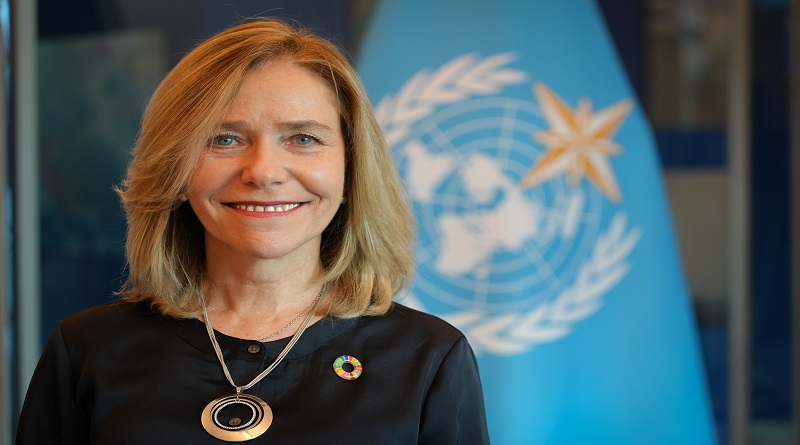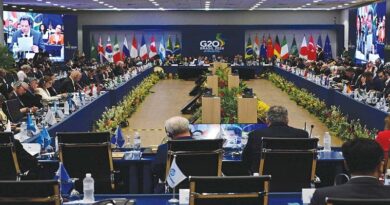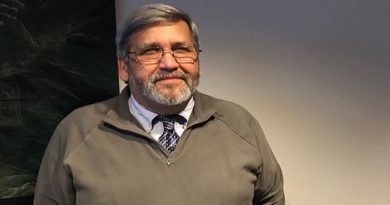Bulletin highlights successes, opportunities and challenges of WMO at 75
Sustained and sustainable support is needed to safeguard WMO’s life-saving and standard-setting work, writes Secretary-General Celeste Saulo in the new WMO Bulletin published to coincide with Executive Council.
In WMO Mandate – A Call for Funding, Celeste Saulo writes that WMO is central to global safety, security and development, with a mission that drives the collection, analysis and dissemination of vital climate and weather data worldwide.
“This core mandate underpins national and regional climate action, enabling effective early warning systems, enhancing resilience, and building capacity within Member States and Territories,” she writes.
“However, as climate risks intensify, WMO faces urgent funding shortfalls that threaten the continuation and growth of these indispensable services. In 2025, the year that WMO celebrates 75 years as a specialized agency of the United Nations, the Organization calls for both public and private sector engagement to meet the goals and targets in the WMO Strategic Plan 2024-2027,” she writes.
In WMO at 75: A Shining Example of the Benefits of International Cooperation: WMO Secretary-General Emeritus Michel Jarraud highlights that there has been remarkable success in the areas of WMO´s core responsibilities – weather, climate and water.
But for WMO to address the societal challenges ahead more effectively, further evolution will be required. New partnerships, across varied disciplines are needed at the international, regional, national and local levels. New forms of governance, with a place for non-traditional actors, are also required.
The article cites the late UN Secretary-General Kofi Annan, who referred to WMO as “the original networker” and expressed his conviction that “the role of WMO will be even more important in the future”.
In WMO Systems for Global and National Benefit, Anthony Rea, Independent Consultant and former WMO Director of Infrastructure, points out that weather information is so commonplace that we do not give it a second thought. But how does this information get to your phone? The data comes from somewhere, but where?
Today, forecasts are ubiquitous on radio, television, print media and, increasingly, on mobile devices. So much so that they can easily be taken for granted. But it is important to remember that, regardless of where you are on the Earth, which country you are in, whether you are on the ground, in the air or on the open ocean, the forecasts you are using are based on information from one of the World Meteorological Centres. And, that every weather, climate or water-related forecast you receive is reliant on the free and open exchange of observational data orchestrated by WMO.
In Celebrating Success in Fostering Regional Collaborations and Coordination, KOH Li-Na, Director-General of the Meteorological Service Singapore, provides perspectives from the Regional Association for the South-West Pacific (RAV).
WMO regional cooperation represents the bedrock for resilience through its continuous improvement of forecasting and early warning services and through disaster risk reductions efforts, which ultimately save lives and protect livelihoods around the globe, she writes.
Floodwaters partially submerge houses, with strong currents and visible damage to buildings and trees, under overcast skies.
The devastation of Hurricane Hattie
Eric King Collection (with permission from Imagination Factri)
Meteorology in the Caribbean – A Personal Record from Belize Perspective gives a unique insight into the experience of Carlos Fuller, Ambassador and Permanent Representative of Belize to the United Nations.
“I do not recall ever thinking about weather and climate during my childhood and teenage years. However, my Sixth Form mathematics teacher who happened to be the country’s Chief Meteorologist offered me a position as a weather observer upon graduation. This was the start of my career in meteorology which lasted 34 years,” writes the seasoned diplomat.
Unlocking East-West Collaboration for Early Warnings for All in Europe. When implementing hazard detection and forecasting, Europe’s diversity is a rich resource for innovation, knowledge sharing and solidarity, write Elena Mateescu, Director General, National Meteorological Administration and president of WMO Regional Association VI, and Matthieu Kohl, WMO Secretariat.
By embracing collaboration between East and West, sharing knowledge and standing in solidarity, the continent can bridge its early warning gaps. In doing so, Europe will not only protect its people and economies – it will set a powerful global example of collective resilience in the face of a changing climate.
In Africa’s Future Climate: Navigating Extremes through Innovation and Early Warnings, Fetene Teshome, Permanent Representative of Ethiopia to WMO and President of Regional Association for Africa writes that the continent’s climate challenges are vast, but so too are its capacities and aspirations.
The continent can be better equipped than ever to forecast risks, protect lives and plan for a sustainable future through the leadership of institutions like the WMO, initiatives such as the Early Warnings for All and reports such as State of the Climate in Africa. We must renew the call for action to our governments, communities and partners to ensure that no one is left behind in the face of climate extremes in Africa and around the world.
WMO Research Programmes, Promoting Science for Action is written by WMO Secretariat staff. It highlights been at the forefront of revolutionary advancements in weather, climate, water and related environmental sciences.
This article highlights how WMO-sponsored research, coordinated through GAW, WWRP and WCRP, has led to groundbreaking scientific advancements while also providing support to WMO Members to enhance observations, prediction and applications. It demonstrates how WMO science has informed, and continues to inform, strategies for achieving global goals




